
Photo by Joe Carducci
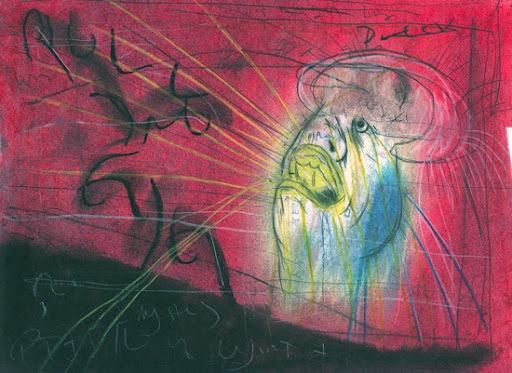
Drawing by James Fotopoulos
From the Desk of Joe Carducci…
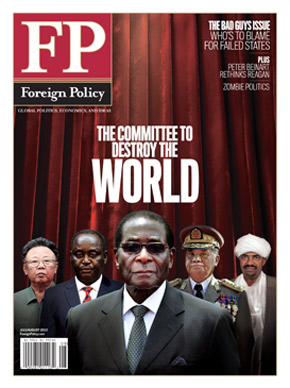 From “The Bad Guys” issue of Foreign Policy, Nathaniel Myers on Africa’s North Korea:
From “The Bad Guys” issue of Foreign Policy, Nathaniel Myers on Africa’s North Korea:“With a population of just 5 million people, Eritrea has clashed with all four of its closest neighbors in the 17 years since it broke off from Ethiopia. Eritrea still keeps as many as 100,000 soldiers stationed along that frontier, just in case. Before that conflict, it fought Yemen over a chain of islands that lay between them. And just two years ago, Eritrea launched a brief, surreal attack on its tiny neighbor, Djibouti, in which some 35 soldiers from both sides died. Many of the deaths occurred when Djiboutian troops refused to hand over Eritrean soldiers who had defected -- whether in hopes of escaping hardship at home, finding better training abroad, or even just getting a few sips of clean water.
Eritrea has also periodically sponsored rebels in Ethiopia, Sudan, and Somalia, occasionally and unapologetically giving refuge to their leaders in Asmara.”
***
M.G. Zimeta in Prospect on the International use of Ethiopia against Africa.
“Indeed, was it ever in the Ethiopian government’s interests for NEPAD to succeed? Part of NEPAD’s mandate is to ensure good governance in African states, and the Ethiopian leadership is hardly a model of this. It has been accused of serious human rights abuses, persecution of political opponents, and anti-democratic governance. Human Rights Watch has called Ethiopia’s recent record ‘poor…and on a deteriorating human rights trajectory.’ The US State Department has cited reports of ‘unlawful killings, torture, beating, abuse, and mistreatment of detainees and opposition supporters by security forces, often acting with evident impunity.’ Foreign Policy magazine has just ranked Ethiopia’s prime minister Meles Zenawi the 9th worst dictator in the world, while the country’s opposition leader and former judge Birtukan Mideksa languishes in prison on a life sentence for treason…. Ethiopia therefore seems a strange choice to be the ‘voice of Africa’ in discussions about African development.”
***
Shannon Horst in the CSM, Africa needs a brown (not green) food revolution.
“Africa's once vast, healthy savannas were produced by the hoofs and manure of vast herds of grazing animals and pack-hunting predators. Turning those lands into crop fields will have the same effect it produced on the Great Plains of the United States – the collapse of the grasslands and the soil, river systems, and the groundwater supplies that lie beneath them. Consider the recent depletion of the Ogallala aquifer that lies beneath a large portion of the Great Plains.
Most of Africa's rural populations are pastoralists or agropastoralists who do not farm. Turning them into ‘productive farmers,’ dependent on foreign seeds and other inputs, is not only destructive to their land, it is destructive to their culture. Millions have already been spent by US and European aid organizations throughout Africa on unsuccessful farming programs. Pastoralists in the Horn of Africa consistently say that these programs have also been culturally destructive.”
***
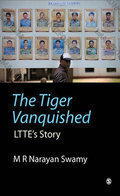 Sreeram Chaulia at atimes.com on M R Narayan Swamy’s book, The Tiger Vanquished:
Sreeram Chaulia at atimes.com on M R Narayan Swamy’s book, The Tiger Vanquished:“Swamy elaborates through fresh revelations that the Congress Party-led coalition government in India played a crucial role in the LTTE's rout. The preceding regime in New Delhi under the Bharatiya Janata Party had covertly orchestrated the Norway-sponsored ceasefire agreement between Colombo and the LTTE in 2002. But the Indian establishment under Prime Minister Manmohan Singh and Congress leader Sonia Gandhi, a woman widowed by Prabhakaran, progressively tilted towards the Sri Lankan government in the war's endgame…. The author lists Prabhakaran's hubris, ‘false sense of superiority’ (p lvii) and misreading of India and the West after September 11, 2001, as other fatal mistakes that brought down his empire in a gory climax. Had the Tiger boss correctly read New Delhi's preference for democracy, pluralism and human rights in the north and east, and liberalized his totalitarian rule, his dream of achieving freedom for Sri Lankan Tamils may not have been comprehensively extinguished.”
***
Anatol Lieven in the FT, Moscow has come in from the cold.
“Despite stabilising its economy, the Russian administration has come to recognise its failure to foster the kind of economic transformation that would give it the chance of surviving as a major power when its energy exports finally run dry. It now sees working with the west as critical to its hopes of economic transformation, not just because of investment and skills but because of the mindsets that could help Russia to overcome its culture of corruption and waste. Without such help Russia risks in the long run becoming little more than a provider of raw materials to the Chinese, and even a Chinese dependency – a picture that fills Russians with private dread.”
***
Alexei Levinson at opendemocracy.net on Russia’s Enemy-love.
“The research that our group conducted during the epoch of Gouache’s ‘new thinking’ uncovered an interesting mix of ‘new’ and ‘old’ thinking in the mass consciousness. Indeed, on the very eve of Gorbachev’s first speeches on the subject, the official Soviet line still held that ‘the world has never been closer to a nuclear war’. Almost overnight, everything changed, and former enemies became friends. We were eager to become part of the European set and even for a moment debated joining NATO. Such trends were naturally reflected in public opinion at the time: when we asked the public to name who Russia’s friends were, for example, it was common to hear ‘everyone’ as an answer….
The same surveys showed particularly interesting responses about Russia’s ‘enemies’. Discounting overspill from historical alliances (‘our enemies are the US, Germany, NATO, or ‘the West’’), there were three general responses — ‘no enemies’, ‘we are our own enemies’ and ‘there are enemies... the problem is that we don’t know who’. Today, our latest polls show the following answers: around 4% consider that Russia has no enemies; while about three times as many believe that Russia has no friends.”
***
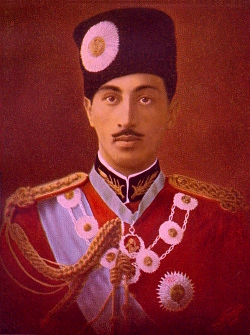 Shireen Burki in CSM on the once and future Kingdom of Afghanistan.
Shireen Burki in CSM on the once and future Kingdom of Afghanistan.“Afghans saw their king as fair and inclusive. Under Zahir Shah, the central government established Afghanistan’s first professional standing Army, yet generally left the provinces alone in their handling of day-to-day affairs. Kabul did not try to force its ‘modernization’ program upon the conservative elements, especially in the Pashtun belt inhabited by proud tribes who were deeply skeptical of anything ‘foreign’ being imposed on them. So memorable was this period that Afghans at the Bonn Conference in 2001, which was set up to plan the future of Afghanistan’s government, clamored to reinstate Zahir Shah and the 1964 Constitution that set forth equal rights for all Afghans before the law. Yet this broad desire was stymied.
What happened? Washington sought the counsel of certain expatriate Afghans with self-interested agendas in 2001 that had long divorced themselves from their people and culture. Their heeded advice did not mirror the hopes and aspirations of Afghans who had stayed behind to endure the brutality of the Soviets, the warlords, and then the Taliban.”
***
Mats Persson at euobserver.com, "What made Europe great?"
“The Treaty of Westphalia locked in this order, ensuring that sovereign states could continue to compete – also leaving them free to copy the advances of those that had enjoyed greater economic and social success. In contrast, China – with its once scientific and naval superiority – chose the path of a single, unified empire; a heavily centralised regime whose autocratic rulers faced little pressure to change their ways…. The consequences are well known: China’s economic revolution was delayed by some 500 years….
But there’s also another aspect of the Peace of Westphalia that is too often overlooked. The nation-state – the idea of territorial integrity and sovereignty – paved the way for the concept of popular sovereignty in Europe. The state became the unit around which democracy – the pre-condition for which is a demos – could be organised.
Europe’s history is of course much more complicated than this – geography is key, for example, religion is a major factor and the rise of the nation-state was coupled with wars and, at times, nasty expressions of nationalism.
Still, EU leaders would do well to glance backwards for a few minutes before deciding what do to next. The eurozone crisis is once again begging fundamental questions about Europe’s past and future.”
***
Tevi Troy in National Affairs, "Bush, Obama, and the Intellectuals".
“The term ‘intellectual’ took the place of the old-fashioned ‘man of letters’ sometime near the end of the 19th century — first among the French, and then the English and Americans. This difference in terms also reflects a difference in kind. A man of letters — while not necessarily a professor in a university — was a learned observer of the times, but tended to offer insights rooted in more timeless truths and principles. Drawing from a broad knowledge of the canon — of history, philosophy, science, literature, or art — he informed the views of other educated people about various social, political, or cultural issues of the day.
Modern intellectuals, too, are learned commentators on contemporary events. But they tend to be less concerned with a knowledge of the canon, and more fixated on these issues of the day, and often seek a mass audience in our mass democracy.”
***
Ruth Rosen in her piece, "Tea Party and the New Right Wing Christian Feminism", at opendemocracy.net, asks plaintively, “Who are these angry people who express so much resentment against the government, rather than at corporations?” She probably didn’t title her piece but she is flummoxed over the number of women in this “incoherent” movement, as she has it. The Left is so busy repairing their fantasy of a blithering, rural, racist front for the use of corporate power that they cannot see a major restructuring of their Republican enemy. It might have been a Democratic restructuring but they are too much the party of the state itself to adapt towards libertarianism. But the Left’s half-century of success in forcing religion and cultural issues generally out of public life and into the home has effected the Right; it now is closer to the Libertarian sense that these folk culture issues can take care of themselves, but only if the state’s mandate in these areas is shrunken. It should be clear that this alone will allow the state’s performance to improve in those areas where its authority must prevail. The Left sees no failure of government in recent developments and so there is no reform of Fannie Mae or Freddy Mac. And a James Surowiecki in the New Yorker duly ignores it, stressing instead American ignorance and predatory lendors which is like worrying about a faucet leak when the levee just broke. And they’ve just decided not to fix the levee. No wonder that though we’re assured that the Tea Party are mindless, Gerald Seib in the WSJ reports that the “Tea Party Message on Spending Is Gaining Traction.”
It’s all fine to argue now is not the time save and cut, but that time will soon come. President Obama himself has promised he’ll get to it.
The new terrorist threat wasn’t taken as a sign the state ought to refocus on the first things of state so as to do them better, either. In fact, 9-11 sent the Left into a civil rights mode against a non-forthcoming racist backlash, so they didn’t notice how that tap on the shoulder from unreformed unenlightened Islam moved the Right on women’s issues. That’s where all those women came from, Ms. Rosen.
Apparently the Libertarians do not recognize themselves in the Tea Party either. David Carr in the NYT looks over the firing of one of those Reason magazine Libertarians from the Washington Post’s on-line Conservo beat. Dave Weigel got fired for venting in some even weirder centrist-only chatroom for “liberals”, that wouldn’t even have Tucker Carlson sans bow-tie. Anyway even the sensibly hip Reasonist libertarians are exhibiting class-panic as they win the argument and stare agog as the great unwashed approach leaving their crucifixes, if not their guns, at home. The Left doesn’t want to win really; we’ve seen that before. Obama’s victory creates interference in how they prefer to view their own country as beneath them. Naturally they hate workers. Now we may find out whether the Libertarians can bear to win an argument if it means sitting down and listening to class enemies.
***
Catherine Rampell in the NYT, "They Did Their Homework (800 Years of It)".
“The economics profession generally began turning away from empirical work in the early 1970s. Around that time, economists fell in love with theoretical constructs, a shift that has no single explanation. Some analysts say it may reflect economists’ desire to be seen as scientists who describe and discover universal laws of nature.
‘Economists have physics envy,’ says Richard Sylla, a financial historian at the Stern School of Business at New York University. He argues that Paul Samuelson, the Nobel laureate whom many credit with endowing economists with a mathematical tool kit, ‘showed that a lot of physical theories and concepts had economic analogs.’ Since that time, he says, ‘economists like to think that there is some physical, stable state of the world if they get the model right.’ But, he adds, ‘there is really no such thing as a stable state for the economy.’”
***
 Sean Collins at spiked-online.com on Daniel Ben-Ami’s new book, Ferraris for All.
Sean Collins at spiked-online.com on Daniel Ben-Ami’s new book, Ferraris for All.“Concerns about the side effects of growth have existed for a long time, going back at least to the Romantic reaction against industrialisation. Ben-Ami argues that today’s situation is different: the restrictions placed on growth are more all-encompassing than ever before, and include environmental, moral and social limits. Ben-Ami builds up a picture of the various ways that growth is challenged. To my knowledge, Ben-Ami is the first writer to bring together the usually disparate discussions of the environment, happiness and inequality, and show how they all challenge the desirability of growth.
Ben-Ami maintains that, rather than challenging growth scepticism, the 2008 recession gave it greater impetus. The growth-sceptic outlook that prevailed prior to the downturn encouraged us to explain it by reference to unbridled greed, instead of structural economic factors. And this greed and excess were said to characterise all of us, not just a few bankers.”
***
William McGurn in the WSJ, "Wal-Mart Does Saul Alinsky".
“In the end, appeals to class warfare by opponents of the company just didn’t hack it with the community. Just before a crucial zoning committee vote, South Siders held a demonstration in which they wore Wal-Mart supplied T-shirts while blowing vuvuzelas….
No doubt for some this is more evidence of the false consciousness that our lumpenproletariat is prone to fall into. But is it? For all the would-be Alinskys out there, which form of community organizing is likely to deliver real hope and change to struggling neighborhoods like the Ninth Ward: the mostly government programs that young Mr. Obama fought for -- or the jobs and opportunities that come from the kind of investment Wal-Mart will be making?”
***
Exhibit A, The Mission Statement:
“The Joan Shorenstein Center on the Press, Politics and Public Policy is a Harvard University research center dedicated to exploring and illuminating the intersection of press, politics and public policy in theory and practice. The Center strives to bridge the gap between journalists and scholars, and between them and the public. Through teaching and research at the Kennedy School of Government and its program of visiting fellows, conferences and initiatives, the Center is at the forefront of its area of inquiry.”
Its useful for these explorers and illuminators to occasionally help prove that the New York Times, and by extension, the news media generally, is Conservative! Listen, it can be hard to get up in the morning -- one has to stop dreaming. Anyway, if you read their damning Abstract at the top of the report you’ll understand why the blogs went nuts; but if you read the report itself, "Torture at Times: Waterboarding in the Media by Harvard Students" [pdf file], you’ll yawn, turn off the light, and yes, Go to Sleep! The NYT has its own perverse interest in being accused of having been Bush’s pet, so their response to this calumny is somewhat casual.
***
David Whelan at Forbes.com on Michael Hastings' book deal with Little, Brown that his coup-counting with the General. It’s untitled for now. My suggestion is to call it: I Too Serve Who Punk for Jan.
***
From an archive of Kenneth Roxroth essays at bopsecrets.org:
Subversive Aspects of Popular Songs [1969]
“At the very beginning of the Middle Ages in Provence there grew up a vast literature of both written and sung poetry that reflected the life of a society more permissive than any to be seen in Europe until modern times. The songs of the troubadours have connections with the poetry of sexual mysticism which spread from India to Persia and across Islam to Muslim Spain. Their influence spread then to Germany, England, even to Constantinople. Whether it was part of the Albigensian heresy or not, the entire culture of Provence, the most civilized part of Europe, was obliterated in the Albigensian Crusade, the bloodiest war of extermination in the West until the invention of gunpowder. Today the influence of the troubadours on a few modern poet singers is apparent, but in the intervening centuries the connection was snapped. The same sexual mysticism can be found in the songs of Leonard Cohen or Anne Sylvestre, both of them strongly influenced by troubadour songs.
It is not surprising that the high bohemianism of the courts of France, Burgundy, and Italy should have developed forms of expression that owed so much to the poor bohemianism of the wandering students. The court of France’s most Renaissance king, François the First, was not unlike our modern jet set or the titled hippies of Way Out London. Bohemianism has been defined as the behavior of those who imitate the luxuries of the rich while lacking the necessities of the poor. If so, the high bohemianism of the rich simply imitates the counterculture of the dropped-out poor.”
***

[Lee Abrams, left, mid-crime.]
Phil Rosenthal in the CT on Lee Abrams. It wasn’t enough to destroy FM radio, and then disable the Tribune, now he’s out to sink the white whale of WGN radio and Television. "We're out to bust the TV cliches… Some of theses cliches are beyond belief." Thank the ghost of William Wrigley the Cubs have a new owner.
The official WGN Lee Abrams bio.
***

Amy Annelle has a new album released. It’s called “The Cimarron Banks”, and she’s doing a run of gigs in the area next weekend. She’s in Maine and Oregon soon too.
•July 9th - Friday at Matter Books, Fort Collins.
•10th - Saturday at the Titwrench Festival, Denver.
•11th - Sunday at the Buckhorn Bar, Laramie.
•12th - Monday Noon live-stream of KRFC FM - Fort Collins.
***
The Units “Warm Moving Bodies” film, or some posthumous version of it is up and quite good. It sent me back to their two self-released 45s. I thought I had their album but I guess not. They were a San Francisco band and we distributed all their stuff at Systematic -- the album was released by 415 Music which is probably a bad sign. 415 was Howie Klein and Chris Knab’s label and they had the kind of commercial ambitions that in those days doomed one to releasing crap or in any case taking what might be an interesting band and trying to process them into something that might fly by the second-guessed judgment of, you smelled it, Lee Abrams. The Units were one of those poorly served interesting bands. On their own at their best they were not fully coherent. They had a pretty good rock drummer who didn’t quite mesh with what Scott was doing on keyboards that were often rough and noisy. They kind of fell between being over the top-futurists like The Screamers and the classically tuneful as Voice Farm. We did pretty well with their singles and helped them run the second 45 though it was not an Optional Music release.
***
Marc Myers in the WSJ on the early crowd control issues at music festivals at music festivals, here the Newport Jazz Festival of 1960.
***
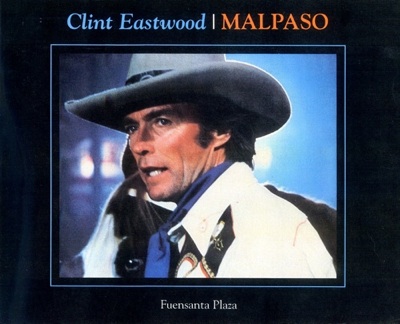
 “The not-so Complete Clint Eastwood” at Lincoln Center still gives New Yorkers a chance to see a lot of good films on a big screen. The Richard Schickel notes pull Eastwood in an auteur direction when the whole point of his career is that he’s an acteur -- one who unbeknownst to his studio or Hollywood generally, could carry films and who, as an actor in “Rawhide” (1959-66) saw a parade of television journeyman directors routinely miss pictorial opportunities the actors saw all around them. Many television actors were famous for their contempt for how series television threatened to make mincemeat of their performances if not their careers, but Eastwood is the only one who beat the system by doing something about it. He isn’t to be lazily termed an auteur, though, or compared to John Ford or anyone else. Not when Hollywood was no longer what it was; in fact Eastwood returning a star from the International co-produced Sergio Leone westerns was taken as the signal proof that the old studio paradigm was comatose, and that some strange new audience Hollywood did not understand would accept, even demand, what Don Siegel meant when he said he’d never worked with an actor that cared less for his image.
“The not-so Complete Clint Eastwood” at Lincoln Center still gives New Yorkers a chance to see a lot of good films on a big screen. The Richard Schickel notes pull Eastwood in an auteur direction when the whole point of his career is that he’s an acteur -- one who unbeknownst to his studio or Hollywood generally, could carry films and who, as an actor in “Rawhide” (1959-66) saw a parade of television journeyman directors routinely miss pictorial opportunities the actors saw all around them. Many television actors were famous for their contempt for how series television threatened to make mincemeat of their performances if not their careers, but Eastwood is the only one who beat the system by doing something about it. He isn’t to be lazily termed an auteur, though, or compared to John Ford or anyone else. Not when Hollywood was no longer what it was; in fact Eastwood returning a star from the International co-produced Sergio Leone westerns was taken as the signal proof that the old studio paradigm was comatose, and that some strange new audience Hollywood did not understand would accept, even demand, what Don Siegel meant when he said he’d never worked with an actor that cared less for his image.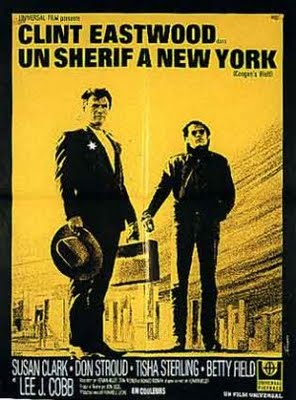 This Eastwood series doesn’t include the Siegel/Eastwood films, Coogan’s Bluff (1969) or The Beguiled (1971), which are probably the most important films missing here. The comeuppance Eastwood’s Arizona deputy Coogan receives in Manhattan is quite wise and unexpected; the comeuppance he gets in The Beguiled is just plain perverse. The failure of The Beguiled, which each thought their best film and blamed on the studio’s falsely marketing it as an action film, changed or maybe forced the Eastwood template into being. The films got a little more formulaic and Eastwood’s hero a bit more inert. Still, genre is a strength and a lot of his smaller seventies and eighties films are exceptional, more so than the later award-winning “white elephant”-trending productions, although Gran Torino (2009) was a return to his old low-cost high-return genre-piece approach. All-told, Eastwood’s career is comparable in its winning ways to that of director Anthony Mann (a good Mann series is just winding up at the Film Forum) in that both Eastwood and Mann got to do or try everything in the way of genre or budget that a studio might back. Nearly uniquely they managed to use the studios as much as the studio used them. Eastwood’s films are not regularly as masterful as Mann’s but then Eastwood did not have a coherent studio-system behind him, which makes his achievement the greater.
This Eastwood series doesn’t include the Siegel/Eastwood films, Coogan’s Bluff (1969) or The Beguiled (1971), which are probably the most important films missing here. The comeuppance Eastwood’s Arizona deputy Coogan receives in Manhattan is quite wise and unexpected; the comeuppance he gets in The Beguiled is just plain perverse. The failure of The Beguiled, which each thought their best film and blamed on the studio’s falsely marketing it as an action film, changed or maybe forced the Eastwood template into being. The films got a little more formulaic and Eastwood’s hero a bit more inert. Still, genre is a strength and a lot of his smaller seventies and eighties films are exceptional, more so than the later award-winning “white elephant”-trending productions, although Gran Torino (2009) was a return to his old low-cost high-return genre-piece approach. All-told, Eastwood’s career is comparable in its winning ways to that of director Anthony Mann (a good Mann series is just winding up at the Film Forum) in that both Eastwood and Mann got to do or try everything in the way of genre or budget that a studio might back. Nearly uniquely they managed to use the studios as much as the studio used them. Eastwood’s films are not regularly as masterful as Mann’s but then Eastwood did not have a coherent studio-system behind him, which makes his achievement the greater.In this Film Society of Lincoln Center’s series, don’t overlook the “lesser” Eastwood below (and find Coogan’s Bluff, and The Beguiled if you haven’t seen them).
 Bronco Billy (1980)
Bronco Billy (1980)Escape from Alcatraz (1979)
The Gauntlet (1977)
Honkytonk Man (1982)
Play Misty for Me (1971)
The Rookie (1990)
White Hunter, Black Heart (1990)
(btw, the rest of the Anthony Mann films at Film Forum are worth seeing and El Cid (1961), The Far Country (1955), and Men In War (1957) are the best.
***
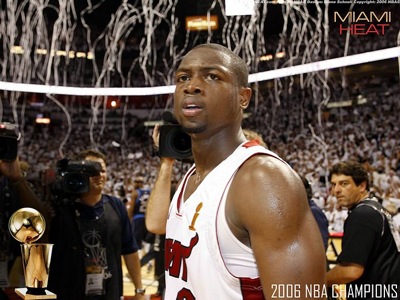 Be nice to wake up tomorrow and find Dwayne Wade in a Bulls uniform. He’s local like Derrick Rose, which would make them unusual starters in the mercenary world of professional major league sports. But witness greater Cleveland’s pull on their own local boy LeBron James… American professionals do bond on occasion with each other and the city and the colors of their jersey. Why else does Utah insist on calling themselves The Jazz, or Los Angeles The Lakers? But a month after the playoffs the NBA free agency roundelay is all but keeping The New Yorker’s choice for the next American sport, Soccer, and its World Cup virtually invisible. Not that I don’t keep the games on now and then -- love that drone… It’s almost as good a noise as squeaking gym shoes. But Mike Watt summed up Soccer’s problem to me once when he laughed, “You can’t use your hands!” Yeah, it’s absurd if not diabolical. What’s a free people being encouraged to play and follow a sport like that for? What does Hendrik Hertzberg have in mind? He’s rooting for soccer in America but one can bet not for Team USA itself -- too gauche. It can be no accident, they’re so smart and all at The New Yorker.
Be nice to wake up tomorrow and find Dwayne Wade in a Bulls uniform. He’s local like Derrick Rose, which would make them unusual starters in the mercenary world of professional major league sports. But witness greater Cleveland’s pull on their own local boy LeBron James… American professionals do bond on occasion with each other and the city and the colors of their jersey. Why else does Utah insist on calling themselves The Jazz, or Los Angeles The Lakers? But a month after the playoffs the NBA free agency roundelay is all but keeping The New Yorker’s choice for the next American sport, Soccer, and its World Cup virtually invisible. Not that I don’t keep the games on now and then -- love that drone… It’s almost as good a noise as squeaking gym shoes. But Mike Watt summed up Soccer’s problem to me once when he laughed, “You can’t use your hands!” Yeah, it’s absurd if not diabolical. What’s a free people being encouraged to play and follow a sport like that for? What does Hendrik Hertzberg have in mind? He’s rooting for soccer in America but one can bet not for Team USA itself -- too gauche. It can be no accident, they’re so smart and all at The New Yorker.Because the sports media and the NBA marketing strategy downplays the team imperative in favor of individual stars’ skills, the game is often misunderstood. But truth is there on the floor. And that is LeBron’s dilemma, and why I’d rather the Bulls wind up with Wade. LeBron is a phenom yes, but his misfortune is to not have been the unwilling second option on a championship team as a young man like Kobe was. And so he’s played so far as an inexperienced first-option who unravels his team’s best attempts to play together with every jaw-dropping individual feat. By which I mean to say that Kobe is wrong, he does not have five championships because by his own behavior he conceded those first three were Shaq’s. During the playoffs Charles Barkley called it during the Cleveland - Chicago series: He kept chiding LeBron and Cleveland for playing merely to beat the Bulls, not to tune up for the next series, where they’d have to deal with an older but much smarter Celtics team. Because of the history between the Bulls and Cavs LeBron joining the Bulls might be too much for a local Ohio boy to inflict on his home-state. They all say it's business so its anybody’s guess. But I did prefer the look on Dwayne Wade’s face when his Miami team lost to the Boston Celtics, than the look on LeBron’s when he too lost to Boston. The collusion of these free agents is an attempt to, as Dennis Scott put it, avoid winding up on the second or third best team in the east and be doomed never to reach the finals.
 Incidently, due to the universal nonesuch of the Jordan-era Bulls it's often forgotten that for a mid-sixties expansion franchise, the Chicago Bulls have a great story Before Jordan as well. Some of it is recapped in this CT photo gallery. Missing are two more players who like Jerry Sloan and Norm Van Lier became coaches out of those early seventies Dick Motta years, Bob Weiss and Matt Goukas. It was a thinking team that played together, and Motta, who had come from college (Weber State) and said later that he didn’t realize until he hit Washington and then Dallas that the NBA wasn’t like that. Those Bulls were that exceptional a team. Only Lew Alcindor at Milwaukee and/or Kareem Abdul-Jabbar at Los Angeles kept those teams from a championship or two.
Incidently, due to the universal nonesuch of the Jordan-era Bulls it's often forgotten that for a mid-sixties expansion franchise, the Chicago Bulls have a great story Before Jordan as well. Some of it is recapped in this CT photo gallery. Missing are two more players who like Jerry Sloan and Norm Van Lier became coaches out of those early seventies Dick Motta years, Bob Weiss and Matt Goukas. It was a thinking team that played together, and Motta, who had come from college (Weber State) and said later that he didn’t realize until he hit Washington and then Dallas that the NBA wasn’t like that. Those Bulls were that exceptional a team. Only Lew Alcindor at Milwaukee and/or Kareem Abdul-Jabbar at Los Angeles kept those teams from a championship or two.Bob Love was my favorite on the team; he’d back into the paint, then twist smoothly in place to face the rim for his jumpshot. He shot more with his elbows than his wrists, the ball well behind his head and virtually unblockable by any defender fronting him. His nickname was Butterbean; he stuttered and so couldn’t become a coach or a spokesman or even be interviewed post-game. At the time he was therefore kind of a mystery man. His speech impediment kept him from stable work until he was bussing tables in Seattle. His boss enrolled him with a speech therapist and he could talk by the time the Bulls were looking to retire his number and hire him as community liaison.
***

Obituary of the Week
Bob Probert (1965 - 2010)
***
Thanks Jay Babcock, Andy Schwartz.

To receive a weekly update notice for the NV, send an email to newvulgate[at]sbcglobal.net with SUBSCRIBE in the subject line. To stop receiving notices, do the same with the word UNSUBSCRIBE.
• The New Vulgate
• Joe Carducci, Chris Collins, James Fotopoulos, Mike Vann Gray, David Lightbourne
• Copyright retained by the writer, artist, or photographer
No comments:
Post a Comment